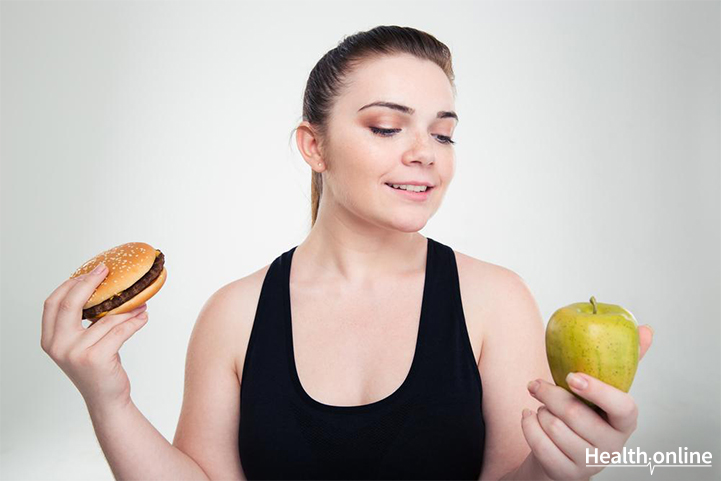
Good Fats vs Bad Fats
These days, everyone is a weight watcher. They try everything possible to lose weight. And when you think about weight loss, the first thing that springs to mind is avoiding fat. But we forget that fats are an essential part of our diet too. We cannot dispense with fats entirely, as the lack of them may cause weakness, dizziness, and a number of other ill-effects for the body.
Recommended Read: High-Fat Breakfast Ideas That Help Weight Loss
Fat is as crucial to your diet as carbs and protein are in running your body with energy. Some bodily functions depend on the presence of fat. For example, some vitamins need fat to liquefy into your bloodstream and provide nutrients. However, excess calories in the body from overeating fat of any type can lead to weight gain, cardiovascular disease, diabetes, cancer, and obesity.
As with most things in life, there are fats that are good for you, and fats that are bad for you. Most foods and oils have a mix of fatty acids, but the primary type of fat they are made of is what determines if they are good for you, or bad for you. Fats that provide nutrition and vitamins are ‘Good fats’, whereas, fats that lead to weight gain and heart problems are ‘Bad fats’.
Read on to get a better understanding of the difference between Good fats and Bad Fats.
What are good fats?
Foods which contain monounsaturated fats and polyunsaturated fats are healthy foods . Unsaturated fats like oleic acid, linoleic acids, omega-3, and omega-6, are good fats. Good fats offer several health benefits, like improving cholesterol levels and lowering your blood pressure . Apart from this, they also help to treat an irregular heartbeat and artery issues. Some examples of foods that contain good fats are:
- Nuts including almonds, cashews, peanuts, and pecans
- Vegetable oils like olive oil, peanut oil, canola oil, etc.
- Avocado
- Peanut butter
- Almond butter
- Walnuts
- Roasted soybean
- Celery
- Seeds like sunflower, pumpkin, sesame, and others
What are bad fats?
Saturated fats that can adversely affect heart health and other body parts are called bad fats. These fats are of two types, i.e. saturated fats and Trans fat. Such fats increase bad cholesterol (LDL) and lower your good cholesterol(HDL). The reason they are unhealthy is that most of them are hydrogenated. Hydrogenation is a biochemical process that food manufacturers use to keep the fat in packed food from going bad. Foods and oils that contain any of these fats must be avoided or must be consumed very rarely as they provide a lot of calories, which can increase weight. Example of foods that contain bad fats are:
- Beef, pork, and lamb
- Chicken Meat
- Poultry skin
- Coconut oil, palm oil, and cocoa butter
- Dairy foods including whole milk, butter, cheese, sour cream, and ice cream
- Fried foods like as French fries, deep-fried, fast foods, and doughnuts
- Baked items including cookies, cakes, and pastries
- Popcorns and other snacks
Recommended Read: Eating Carbs and Fats Before a Workout
Nutritional differences between Good and Bad Fats
Monounsaturated and polyunsaturated fats help the body absorb fat-soluble vitamins A, D, E, and K. Without good fats, you will not get any of these essential vitamins. In stark, saturated fats tend to increase the levels of LDL (low-density lipoprotein) cholesterol or bad cholesterol in your body. In some cases, trans-fat can also suppress HDL (high-density lipoprotein) cholesterol or good cholesterol levels, raising your risk of heart disease three times more than saturated fat.
Here are some health benefits of Good fats:
- Improve and increase good cholesterol levels.
- Reduce the risk related to heart problems, stroke, and diabetes.
- Promote healthy nerve activities.
- Improve cell development.
- Helps to strengthen the immune system and provide better vitamin absorption.
Understanding what good fats and bad fats can do to your body is crucial. Just eliminating fats from your diet without knowing its after-effects is not a good practice. Though good fats are healthy to eat, they also contain calories. Therefore, make sure you don’t consume them in excess. Avoid packaged foods, and include fresh vegetables , fish, and nuts in your diet. If you can’t avoid fried and fast foods entirely, then at least try to reduce the quantity you eat.
Keep yourself updated with the latest on Diet and Nutrition . Like us on Facebook and follow us on Twitter for more on Health , Fitness and Health Recipes . Also, check out our Health Tools and try out our health-related Quizzes .




